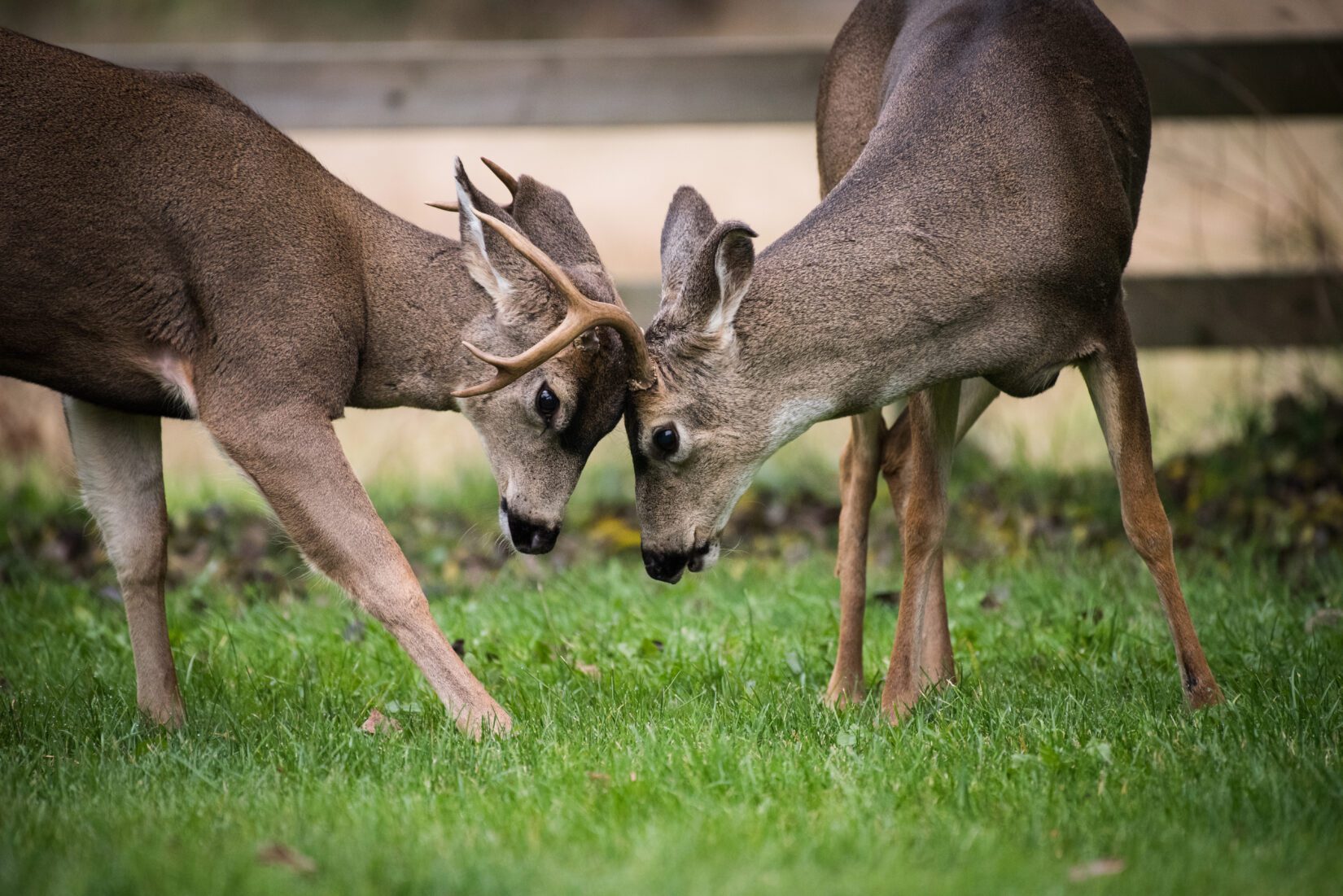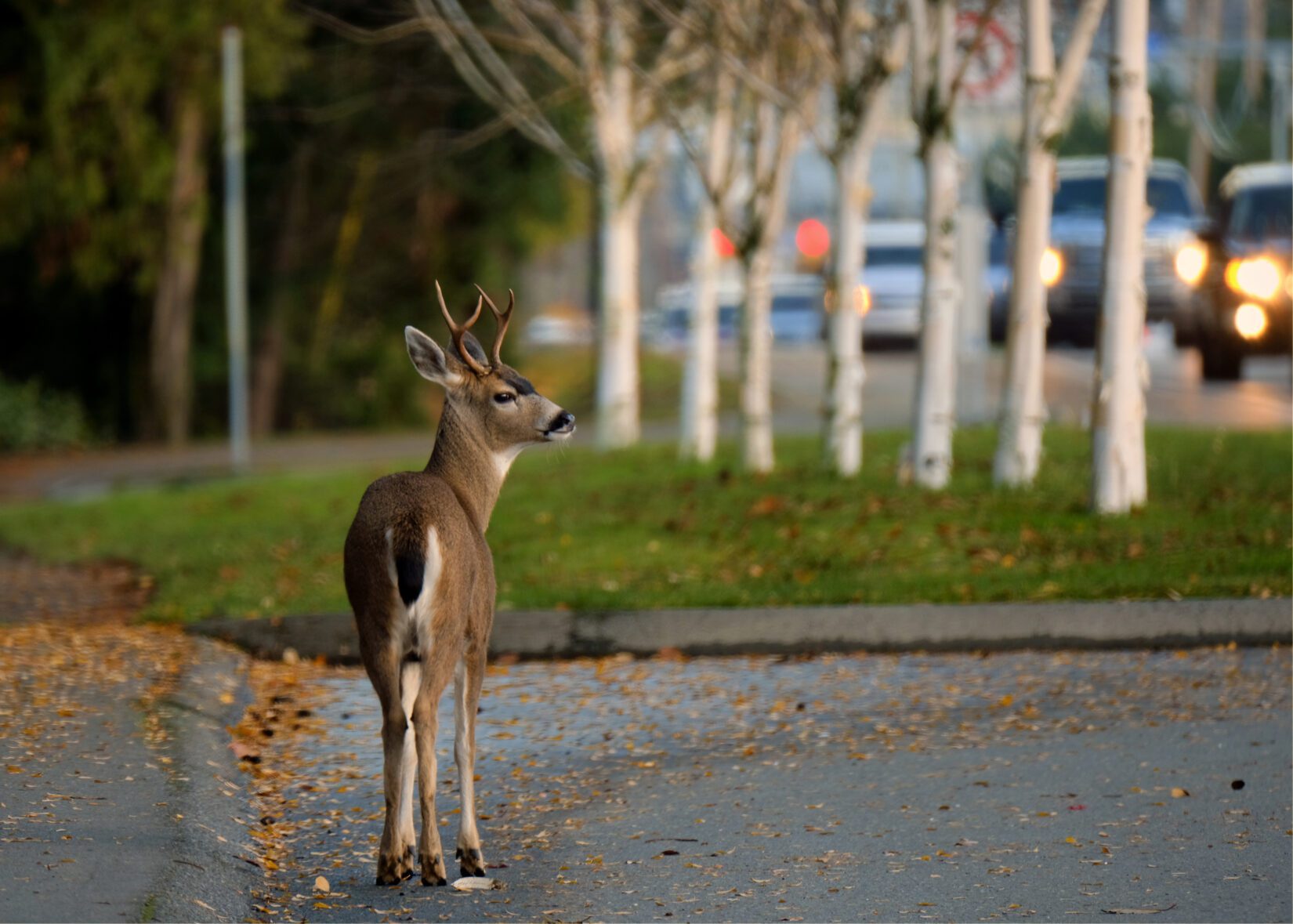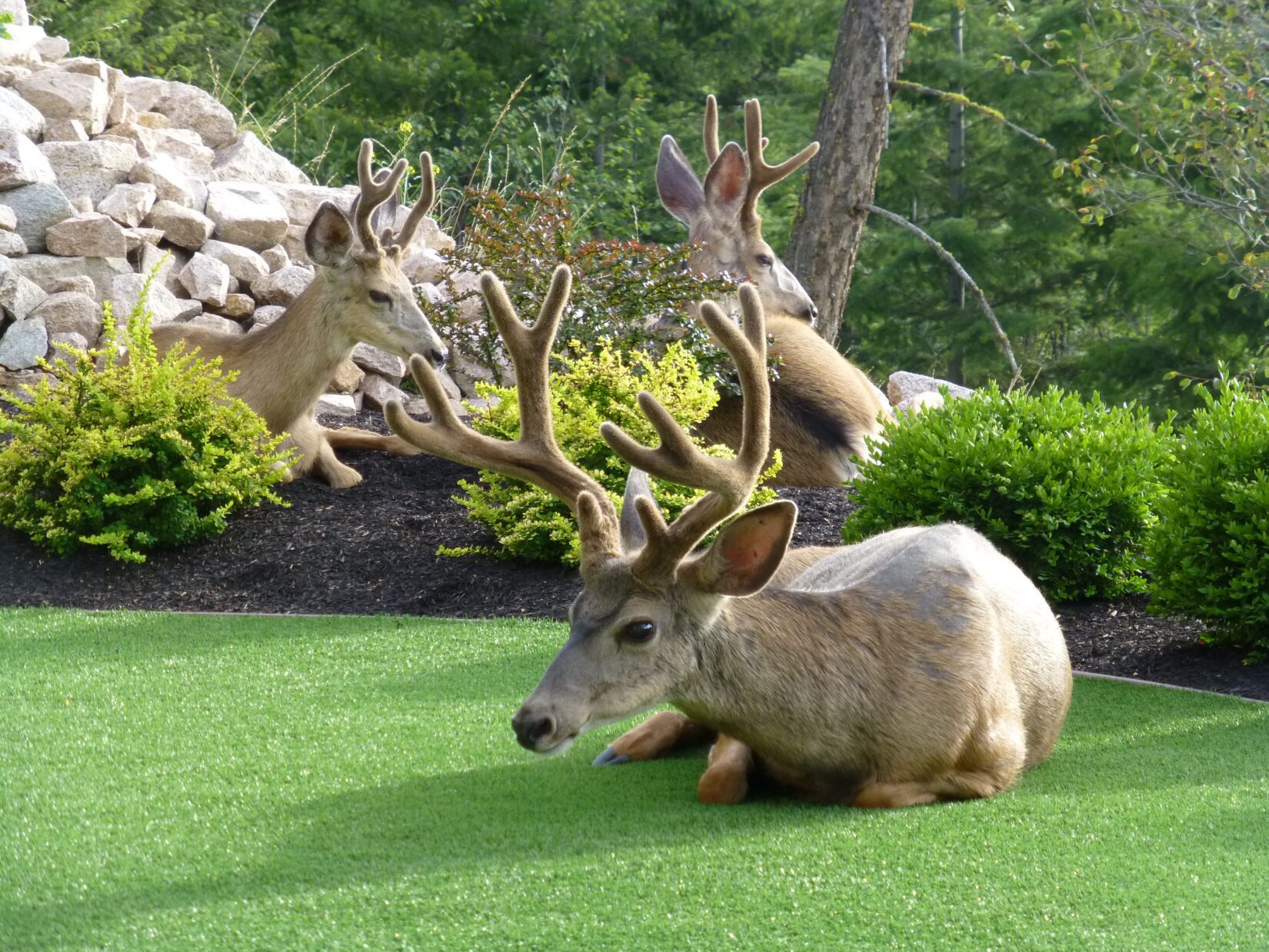Have you spotted deer acting a little weird, and wondered what they were up to? The short answer is that the deer are stuck in a rut! Or rather, it’s rutting season. Mid-October to December is the annual mating or ‘rutting’ season for deer. During this time, male deer (bucks) become more interested in female deer (does), and will compete for their attention. This means they will show more aggression to other males – perceiving them as competition – and will often challenge and fight other males. During rutting season, you might see deer rubbing their antlers on trees, scraping the ground with their hooves, or see deer “pushing” each other around.

If you see deer when you are outside, give them plenty of space – they may feel threatened by close quarters and see humans or companion animals as a “rival” or simply as a danger during this sensitive time. Take a different route if deer activity is regularly occurring in an area, keep dogs leashed and pick up small dogs if a deer is near.

Unfortunately, as the rutting season peaks, so does the number of deer-vehicle collisions. This is because deer tend to be more active at night during this time, especially at dawn and dusk. Deer are focused on finding a mate, and can be less aware of their surroundings, or they may be moving quickly to find a mate or run from a dominant male. During this time, drive carefully, and watch for deer. When you see one deer, slow down and watch for others, because another deer (or more!) may be close behind. Don’t feed deer at any time of year. This causes them to become habituated to humans, and they are more likely to show aggression towards people or be involved in vehicle collisions.

Unfortunately, wildlife rehabilitators can’t often help injured adult deer, as they are too high-stress to keep in a captive setting. Even when injured, they can be very dangerous because of their size and strength. If you can approach an injured adult deer and they don’t run away, they are likely too badly injured to survive.
Call your local RCMP or Conservation Officer Service 1-877-952-7277 (RAPP) to humanely euthanize an injured adult deer.
